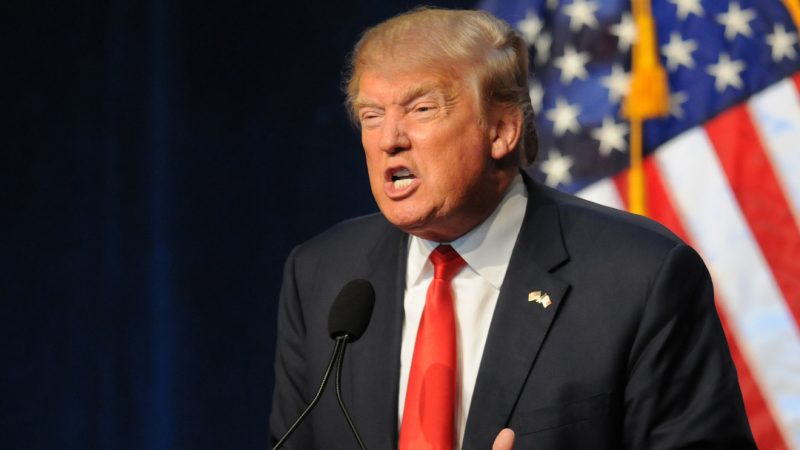The U.S. will hold Venezuelan President Nicolas Maduro “personally responsible’’ for the safety of two opposition leaders, President Donald Trump said in a statement.
Opposition leader Leopoldo Lopez and Caracas Mayor Antonio Ledezma, who were taken into custody earlier Tuesday, were “political prisoners being held illegally by the regime,’’ he continued.
“The U.S. holds Maduro, who publicly announced just hours earlier that he would move against his political opposition, personally responsible for the health and safety of Mr Lopez, Mr Ledezma, and any others seized,’’ Trump said.
Police stormed the home of Lopez, who was already under house arrest, and took him back to jail in the early hours of Tuesday, according to his wife, Lilian Tintori.
Caracas Mayor Antonio Ledezma, an opposition politician, who was also under house arrest, was reportedly taken back into detention on Tuesday as well.
Court officials said on Tuesday that both men had made political statements in violation of the terms of their release into house arrest, and accused them of planning to flee the country.
The arrests came as leaders of Venezuela’s opposition-dominated legislature called for citizens to help defend the National Assembly, and welcomed a surge of international support, as Maduro seeks to rewrite the country’s constitution.
A vote decreed by Maduro was held Sunday to elect deputies to a Constituent Assembly, which the opposition says is a power grab by the president to install one-party rule.
Freddy Guevara, Vice President of the unicameral legislature, called for Venezuelans to peacefully defend the parliament building, which the Constituent Assembly is expected to seek to occupy when it begins meeting as early as this week.
“The solidarity with our case is growing,” Guevara said, noting that visits had been made on Tuesday to the assembly by ambassadors from France, Spain, Britain and Mexico.
Governments in Latin America, Europe and the U.S. have rejected the legitimacy of Sunday’s election.
Authorities said 10 people died on Sunday in election-related violence, while the opposition claimed the death toll was 16.
At least 123 people have died since April in ongoing anti-Maduro protests.
The opposition Democratic Unity Roundtable coalition, which won a two-thirds majority in December 2015, accuses Maduro of seeking to cripple Venezuela’s legislative and judicial branches.
UN Chief Antonio Guterres called on all parties in Venezuela to seek a political solution “in this critical moment” and “particularly those representing the powers of the state.
“It will make all possible efforts to lower tensions, prevent further violence and loss of life,” spokesman Stephane Dujarric said Tuesday in New York.
After Sunday’s vote, Washington slapped financial sanctions on Maduro for undermining democracy in Venezuela, blacklisting him alongside some of the world’s most notorious leaders.
Maduro was defiant in response, saying, “I don’t take imperialist orders.’’
U.S. government officials are also considering trade sanctions against Venezuela targeting its oil industry, the New York Times has reported, citing unnamed American officials.
Venezuela accounts for around 10 per cent of the oil that America imports.
In spite having the world’s largest oil reserves, Venezuela is suffering the world’s highest inflation rate and chronic shortages of basic goods and medicines in an economic crisis worsened by the 2014 drop in oil prices.
Tens of thousands of Venezuelans have fled the country into neighbouring Colombia and Brazil.
Venezuela’s current 1999 constitution brought sweeping structural reforms sought by Maduro’s predecessor, left-wing populist Hugo Chavez, to implement large social programmes.
Maduro was his hand-picked successor and took office when Chavez died of cancer in 2013. (dpa/NAN)



Leave a Reply